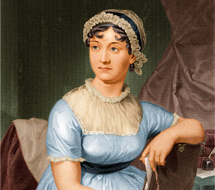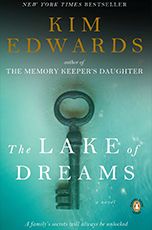 In a blog post for Newcity Lit college professor Monica Westin discusses the recent popularity of zombie books and questions the value of literary mash-ups like Pride and Prejudice and Zombies and Pride and Prejudice: Dawn of the Dreadfuls. The fact that many of these books have been bestsellers proves that they are obviously entertaining, but does this zombie trend have meaning beyond that? The proliferation of zombie tales of late could be owed in part to the novelty of experiencing characters that are primarily depicted in films or video games in print. Westin attributes most of the modern mythology and code of zombie behavior to George Romero’s Night of the Living Dead film franchise. Through the years, Romero and other fellow horror directors, have used the undead to symbolize cultural fears that range from the spread of communism to globalized viral epidemics. However, Westin argues that when zombies are introduced into a classic piece of literature, “the meaning of the original book often gets lost or marginalized with the addition of a monster plotline.” Read more…
In a blog post for Newcity Lit college professor Monica Westin discusses the recent popularity of zombie books and questions the value of literary mash-ups like Pride and Prejudice and Zombies and Pride and Prejudice: Dawn of the Dreadfuls. The fact that many of these books have been bestsellers proves that they are obviously entertaining, but does this zombie trend have meaning beyond that? The proliferation of zombie tales of late could be owed in part to the novelty of experiencing characters that are primarily depicted in films or video games in print. Westin attributes most of the modern mythology and code of zombie behavior to George Romero’s Night of the Living Dead film franchise. Through the years, Romero and other fellow horror directors, have used the undead to symbolize cultural fears that range from the spread of communism to globalized viral epidemics. However, Westin argues that when zombies are introduced into a classic piece of literature, “the meaning of the original book often gets lost or marginalized with the addition of a monster plotline.” Read more…

 Nearly 200 years after her death, Jane Austen remains one of the world’s best-loved authors. Much has been written about her work and life, and for decades it was widely accepted that she died from Addison’s disease, a rare disorder in which the adrenal gland does not produce enough hormones. However, CNN reports that social scientist Katherine White disputes the diagnosis and theorizes that Austen died of tuberculosis. An article for the British Medical Journal published in 1964, was the first to suggest Austen had Addison’s disease. White, who also suffers from the disease, recently read the article and felt the author’s symptoms did not add up. Sufferers often experience painful headaches and verbal difficulties. But in a letter to a friend written just two months before hear death, Austen states: “My head was always clear, and I had scarcely any pain.” Though this is only anectodal evidence from two centuries ago, endocrinology expert Kenneth Burman agrees there is some merit to White’s theory, due to the wide spread of tuberculosis during the author’s lifetime. Though he warns: “Retrospective diagnosis is very speculative. It’s unknowable with certainty.”
Nearly 200 years after her death, Jane Austen remains one of the world’s best-loved authors. Much has been written about her work and life, and for decades it was widely accepted that she died from Addison’s disease, a rare disorder in which the adrenal gland does not produce enough hormones. However, CNN reports that social scientist Katherine White disputes the diagnosis and theorizes that Austen died of tuberculosis. An article for the British Medical Journal published in 1964, was the first to suggest Austen had Addison’s disease. White, who also suffers from the disease, recently read the article and felt the author’s symptoms did not add up. Sufferers often experience painful headaches and verbal difficulties. But in a letter to a friend written just two months before hear death, Austen states: “My head was always clear, and I had scarcely any pain.” Though this is only anectodal evidence from two centuries ago, endocrinology expert Kenneth Burman agrees there is some merit to White’s theory, due to the wide spread of tuberculosis during the author’s lifetime. Though he warns: “Retrospective diagnosis is very speculative. It’s unknowable with certainty.”
Read more…

 In a blog post for Newcity Lit college professor Monica Westin discusses the recent popularity of zombie books and questions the value of literary mash-ups like Pride and Prejudice and Zombies and Pride and Prejudice: Dawn of the Dreadfuls. The fact that many of these books have been bestsellers proves that they are obviously entertaining, but does this zombie trend have meaning beyond that? The proliferation of zombie tales of late could be owed in part to the novelty of experiencing characters that are primarily depicted in films or video games in print. Westin attributes most of the modern mythology and code of zombie behavior to George Romero’s Night of the Living Dead film franchise. Through the years, Romero and other fellow horror directors, have used the undead to symbolize cultural fears that range from the spread of communism to globalized viral epidemics. However, Westin argues that when zombies are introduced into a classic piece of literature, “the meaning of the original book often gets lost or marginalized with the addition of a monster plotline.” Read more…
In a blog post for Newcity Lit college professor Monica Westin discusses the recent popularity of zombie books and questions the value of literary mash-ups like Pride and Prejudice and Zombies and Pride and Prejudice: Dawn of the Dreadfuls. The fact that many of these books have been bestsellers proves that they are obviously entertaining, but does this zombie trend have meaning beyond that? The proliferation of zombie tales of late could be owed in part to the novelty of experiencing characters that are primarily depicted in films or video games in print. Westin attributes most of the modern mythology and code of zombie behavior to George Romero’s Night of the Living Dead film franchise. Through the years, Romero and other fellow horror directors, have used the undead to symbolize cultural fears that range from the spread of communism to globalized viral epidemics. However, Westin argues that when zombies are introduced into a classic piece of literature, “the meaning of the original book often gets lost or marginalized with the addition of a monster plotline.” Read more…
 Nearly 200 years after her death, Jane Austen remains one of the world’s best-loved authors. Much has been written about her work and life, and for decades it was widely accepted that she died from Addison’s disease, a rare disorder in which the adrenal gland does not produce enough hormones. However, CNN reports that social scientist Katherine White disputes the diagnosis and theorizes that Austen died of tuberculosis. An article for the British Medical Journal published in 1964, was the first to suggest Austen had Addison’s disease. White, who also suffers from the disease, recently read the article and felt the author’s symptoms did not add up. Sufferers often experience painful headaches and verbal difficulties. But in a letter to a friend written just two months before hear death, Austen states: “My head was always clear, and I had scarcely any pain.” Though this is only anectodal evidence from two centuries ago, endocrinology expert Kenneth Burman agrees there is some merit to White’s theory, due to the wide spread of tuberculosis during the author’s lifetime. Though he warns: “Retrospective diagnosis is very speculative. It’s unknowable with certainty.”
Nearly 200 years after her death, Jane Austen remains one of the world’s best-loved authors. Much has been written about her work and life, and for decades it was widely accepted that she died from Addison’s disease, a rare disorder in which the adrenal gland does not produce enough hormones. However, CNN reports that social scientist Katherine White disputes the diagnosis and theorizes that Austen died of tuberculosis. An article for the British Medical Journal published in 1964, was the first to suggest Austen had Addison’s disease. White, who also suffers from the disease, recently read the article and felt the author’s symptoms did not add up. Sufferers often experience painful headaches and verbal difficulties. But in a letter to a friend written just two months before hear death, Austen states: “My head was always clear, and I had scarcely any pain.” Though this is only anectodal evidence from two centuries ago, endocrinology expert Kenneth Burman agrees there is some merit to White’s theory, due to the wide spread of tuberculosis during the author’s lifetime. Though he warns: “Retrospective diagnosis is very speculative. It’s unknowable with certainty.”